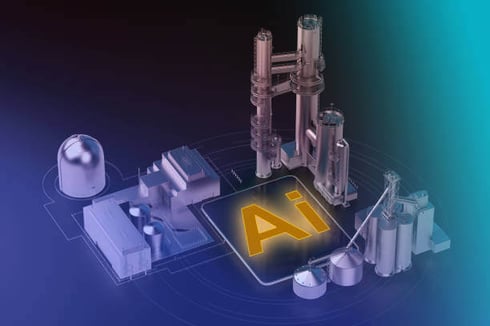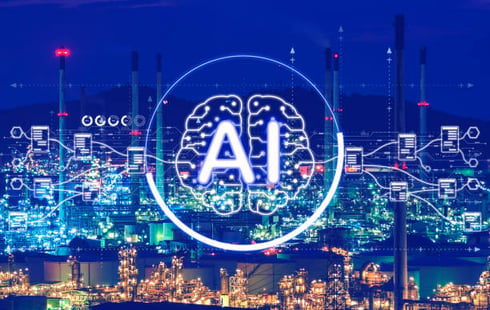Unlocking Everyday Efficiency: How AI Integration is Transforming Purchasing Operations in Chemical Manufacturing
In the world of chemical manufacturing, purchasing managers walk a daily tightrope—balancing volatile raw material markets, regulatory compliance, supplier reliability, and ever-tightening margins. The pressure is unrelenting. But today, artificial intelligence (AI) is no longer a futuristic buzzword—it’s an operational tool transforming how purchasing departments function. When seamlessly integrated into advanced planning systems like PlanetTogether, and connected with enterprise platforms such as SAP, Oracle, Microsoft, Kinaxis, or Aveva, AI becomes a daily asset for improving responsiveness, transparency, and profitability.
This blog explores how AI integration is being woven into the fabric of everyday operations for purchasing managers in chemical manufacturing—and why embracing this shift is no longer optional, but essential.
The AI Shift: From Strategic Initiative to Daily Tool
For many chemical manufacturers, AI initially entered the scene as a strategic initiative—limited to pilot projects, R&D, or demand forecasting experiments. But today, AI has migrated into core operational processes, especially in procurement. It’s enhancing decision-making in:
Supplier selection and risk assessment
Contract management and compliance
Price forecasting and cost optimization
Inventory purchasing and replenishment
Spend analysis and demand sensing
What’s changed? The convergence of AI with powerful Advanced Planning and Scheduling (APS) tools like PlanetTogether, combined with its ability to plug into ERP and SCM platforms like SAP, Oracle, or Kinaxis, now brings real-time, AI-driven insights directly into the buyer’s workflow.

The Role of PlanetTogether in Everyday AI Adoption
As purchasing becomes increasingly interconnected with production schedules, supply chain timelines, and financial controls, PlanetTogether APS is emerging as the nerve center that synchronizes these moving parts. It enables real-time planning visibility, but when enhanced with AI models and integrated with ERP systems, the benefits scale dramatically.
Here’s how:
Dynamic Vendor Scoring and Risk Profiling
AI algorithms connected through PlanetTogether can continuously evaluate supplier performance based on historical delivery patterns, quality issues, price fluctuations, and even external data like financial health or geopolitical factors. This enables dynamic risk scoring, which helps purchasing managers make smarter sourcing decisions—fast.
When integrated with SAP Ariba or Oracle Procurement Cloud, PlanetTogether can pull updated vendor data and recommend changes to preferred supplier lists, all while aligning with your current production schedule.
Predictive Purchase Planning
Let’s say your chemical facility is seeing a spike in demand for a product due to seasonal trends or a downstream client ramping up production. PlanetTogether, paired with AI-driven forecasting models, can predict future material needs and automatically trigger smart purchase recommendations.
Integration with platforms like Kinaxis RapidResponse or Microsoft Dynamics 365 Supply Chain Management ensures those predictions are aligned with inventory levels, supplier lead times, and financial constraints—so purchasing is both proactive and precise.
Cost Optimization through Market Intelligence
AI tools can ingest commodity pricing data, supplier quotes, and global market signals to recommend optimal purchasing windows. PlanetTogether acts as the bridge between these insights and your operational schedule.
For instance, if benzene prices are expected to spike in two weeks, the system can flag this and suggest advancing purchase orders—adjusting production plans accordingly to avoid higher costs. When connected with Aveva’s operations management tools, this intelligence even factors in plant asset availability and utilization.

Everyday Wins from AI Integration
Purchasing managers often deal with high volumes of routine decisions—many of which are ripe for AI optimization. With an integrated AI strategy, chemical manufacturers are seeing real improvements in:
Lead Time Reduction
By dynamically adjusting procurement schedules based on production demand, supplier behavior, and logistics data, companies are trimming lead times by up to 20%. AI identifies inefficiencies before they become problems.
Inventory Cost Reduction
Smart replenishment models analyze safety stock levels, shelf-life constraints (critical in chemical environments), and real-time demand shifts to ensure just-in-time ordering. AI reduces both overstocking and stockouts.
Compliance Assurance
In regulated environments like chemical manufacturing, staying audit-ready is crucial. AI-driven systems flag documentation gaps, expired contracts, or regulatory mismatches. Integration with platforms like SAP EHSM or Oracle SCM Cloud ensures end-to-end traceability of all purchases.
Enhanced Supplier Relationships
Proactive communication (powered by AI chatbots and automated status updates), consistent on-time payments, and data-backed feedback loops improve supplier trust and collaboration.
Practical Steps for Purchasing Managers to Start the AI Journey
The transition to AI-enhanced purchasing doesn’t require a complete tech overhaul. Here’s a practical roadmap:
Step 1: Assess Current Tools
Map out your existing stack—ERP (SAP, Oracle, Microsoft), planning tools (PlanetTogether), analytics platforms, and supplier portals.
Step 2: Identify High-Impact Use Cases
Start small. Choose an area like demand-driven purchasing or supplier risk scoring where AI can bring immediate value.
Step 3: Integrate, Don’t Isolate
Use middleware or native integrations to connect PlanetTogether with your core ERP or SCM system. This ensures AI insights are grounded in real operational data.
Step 4: Train Your Team
AI is only as powerful as its users. Upskill your purchasing team in interpreting and trusting AI recommendations.
Step 5: Monitor and Optimize
AI systems learn over time. Set up dashboards (via tools like Power BI or Tableau) to track key metrics—cost savings, lead times, supplier performance—and adjust models accordingly.
Chemical manufacturing demands precision, speed, and resilience—qualities that traditional procurement models struggle to deliver at scale. AI, when integrated with planning platforms like PlanetTogether and synchronized with enterprise ecosystems like SAP, Oracle, Microsoft, Kinaxis, and Aveva, elevates purchasing from reactive to predictive, from siloed to synchronized.
As a purchasing manager, your day-to-day decisions impact everything from production uptime to profitability. With AI, you gain a digital co-pilot that helps you make those decisions faster, smarter, and with greater confidence.
Are you ready to take your manufacturing operations to the next level? Contact us today to learn more about how PlanetTogether can help you achieve your goals and drive success in your industry.
Topics: PlanetTogether Software, Integrating PlanetTogether, Lead Time Reduction, Compliance Assurance, Chemical Manufacturing, Dynamic Vendor Scoring and Risk Profiling, Predictive Purchase Planning, Cost Optimization through Market Intelligence, Inventory Cost Reduction





















LEAVE A COMMENT